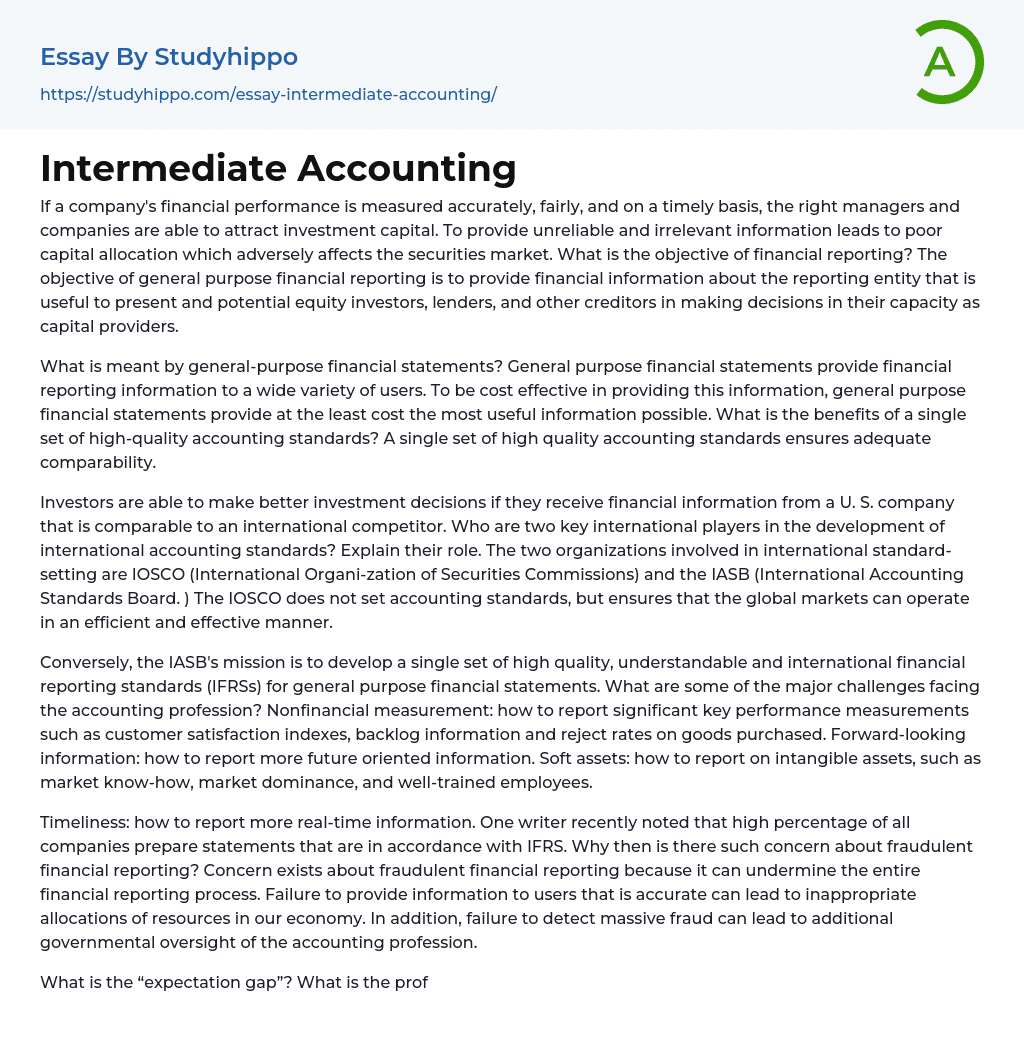The objective of financial reporting is to deliver essential fiscal data concerning the company that is reporting. This information proves invaluable for both existing and potential investors, creditors, and other credit providers as it aids in informed decision-making when providing capital. Precise assessment, impartiality, and prompt disclosure of an organization's financial standing can support appropriate business entities and managers in securing investment funds. On the flip side, presenting false or irrelevant details might result in improper resource distribution and have a detrimental effect on the securities market.
What does the term 'general-purpose financial statements' imply? It refers to financial reporting documents that are designed to cater to a broad range of end-users. For efficient delivery of this information at a relatively low cost, such statements strive to offer the highest possible value of information. How advantageous is it to have a unified
...set of top-tier accounting standards? Having a single, excellent set of accounting standards guarantees sufficient comparative analysis.
When investors access similar financial information from a U.S. company and its global counterpart, it can better inform their investment decisions. Highlight two notable organizations that play key roles in creating international accounting standards and provide details about their functions. The IOSCO (International Organization of Securities Commissions) and the IASB (International Accounting Standards Board) are primarily responsible for establishing these worldwide guidelines. Nonetheless, generating accounting regulations is not within the purview of IOSCO; instead, its main focus lies in maintaining well-functioning and efficient markets at an international level.
Conversely, the IASB aims to formulate a consistent set of high-calibre, understandable and globally applicable financial reporting standards (IFRSs) for genera
purpose financial reports. What are the challenges encountered by the accounting field? Non-financial metrics: The process of documenting key performance indicators such as customer satisfaction percentages, backlog information and rejection rates for purchased products. Predictive data: The practice of offering more future-oriented specifics. Intangible assets: The approach of recording non-tangible assets like market insight, market superiority, and skilled personnel.
Promptness: why it is essential to present more real-time data. It was observed by a writer that most companies generate reports that comply with IFRS. Despite this, questions persist about dishonest financial reporting. Anxieties about such fraudulent financial reporting are valid as they have the potential to disrupt the entire financial reporting mechanism. The consequence of not supplying accurate data to users may result in the misallocation of resources in our economy. Moreover, disregarding major fraud can prompt more government regulation over the accounting sector.
The term "expectation gap" denotes the difference between what the public perceives as accountants' roles and obligations, and what accountants believe they can realistically achieve. Confronting this discrepancy is a significant challenge. Nonetheless, it's broadly recognized in the accounting profession that actively addressing this split plays an essential role. In their effort to meet societal expectations, professionals continuously develop accounting standards, which include various declarations from the IASB. This assists them in effectively recording and managing business transactions within a volatile economic environment.
What ethical challenges do financial accountants come across in their professional journey? Is proficiency in IFRS insufficient for the practice of financial accounting? It is essential for accountants to acknowledge the ethical elements under specific circumstances since IFRS does not always provide explicit instructions on
all unique details that should be included in financial reports. In these scenarios, accountants have to choose from a range of alternatives. Such accounting choices determine whether some stakeholders may gain benefits or incur losses. Ethical decision-making mandates acknowledgement of potential benefits or damages and taking responsibility for the decisions made.
- Net Present Value essays
- Income Statement essays
- Bank essays
- Banking essays
- Corporate Finance essays
- Credit Card essays
- Currency essays
- Debt essays
- Donation essays
- Enron Scandal essays
- Equity essays
- Financial Accounting essays
- Financial Crisis essays
- Financial News essays
- Financial Ratios essays
- Financial Services essays
- Forecasting essays
- Foreign Exchange Market essays
- Free Market essays
- Gold essays
- Investment essays
- Legacy essays
- Loan essays
- Market Segmentation essays
- Money essays
- Personal finance essays
- Purchasing essays
- Retirement essays
- Shareholder essays
- Stock Market essays
- Supply And Demand essays
- Venture Capital essays
- Accountability essays
- Accounting Software essays
- Accounts Receivable essays
- Auditor's Report essays
- Balance Sheet essays
- Cash essays
- Cash Flow essays
- Costs essays
- Financial Audit essays
- Internal Control essays
- International Financial Reporting Standards essays
- Management Accounting essays
- Principal essays
- Tax essays




